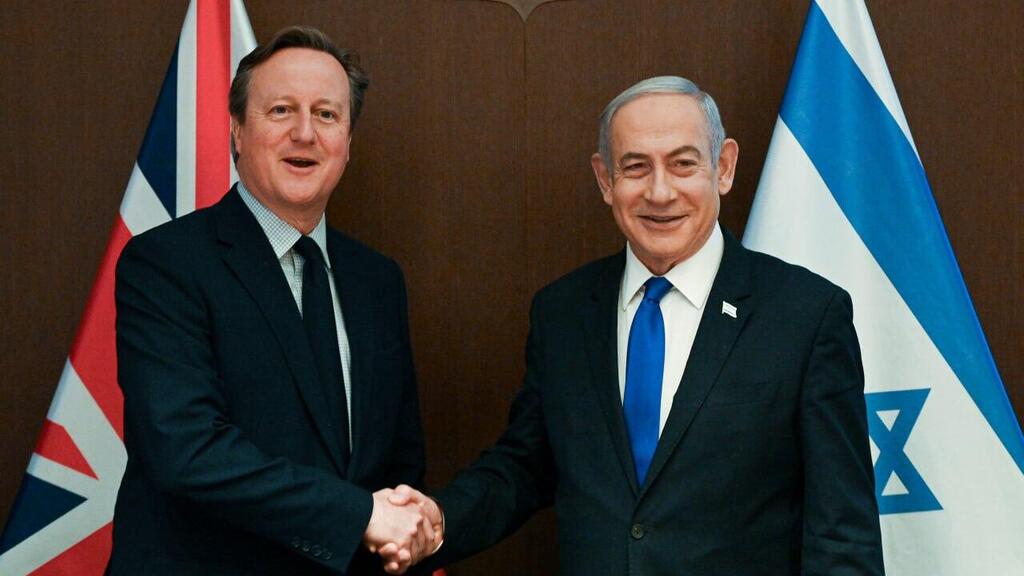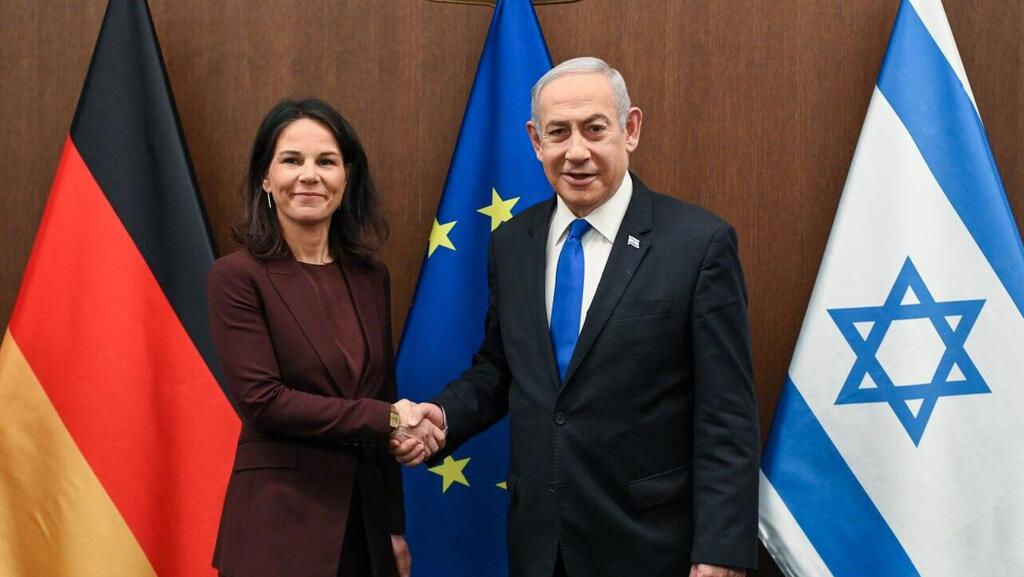Visiting British and German foreign ministers met on Wednesday with Prime Minister Benjamin Netanyahu and Foreign Minister Israel Katz to discuss Israel's response to the unprecedented attack by Iran on Sunday.
"Be smart," they told their hosts, a message Israeli leaders have heard often since Iran launched hundreds of missiles and drones, most of which were successfully shot down even before reaching Israeli airspace, by the IDF's aerial defenses, and with the active participation of the U.S., Britain and Jordan.
The ministers heard from Netanyahu that Israel will make its own decisions about how to defend itself. He thanked the ministers for their countries' support
Cameron said it was now apparent Israel planned to retaliate for the Iranian strike but hoped they would do so "in a way that is smart as well as tough and also does as little as possible to escalate this conflict."
Baerbock said escalation "would serve no one, not Israel's security, not the many dozens of hostages still in the hands of Hamas, not the suffering population of Gaza, not the many people in Iran who are themselves suffering under the regime, and not the third countries in the region who simply want to live in peace."
The ministers were given a comprehensive briefing on the details of humanitarian aid provided to the Gaza Strip and hear from a representative of the military, about the details of the tragic killing of seven WCK workers by the military earlier this month.
Katz discussed the importance of continued international pressure to bring about a release of the hostages held by Hamas and asked his guests to work toward that end in the UN security Council.
The United States, European Union, and G7 group of industrialized nations all announced plans to consider tighter sanctions on Iran, seen as aimed at mollifying Israel and persuading it to rein in its retaliation for the first ever direct Iranian strikes after decades of confrontation by proxy.
The U.S. had announced plans to impose new sanctions targeting Iran's missile and drone program in the coming days and expects its allies will follow suit. EU leaders are due to discuss sanctions at a summit in Brussels, and sanctions are also on the agenda at G7 talks in Italy.



